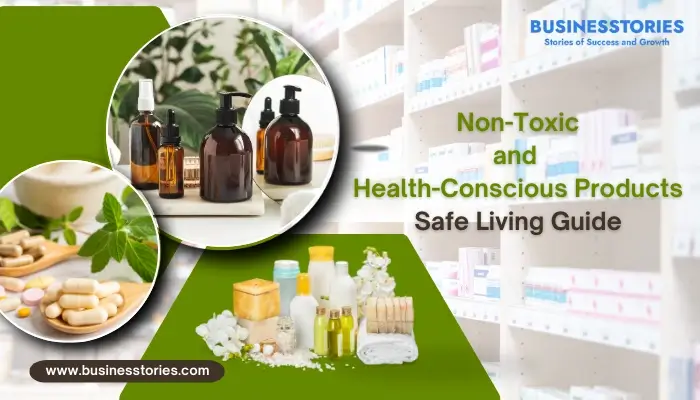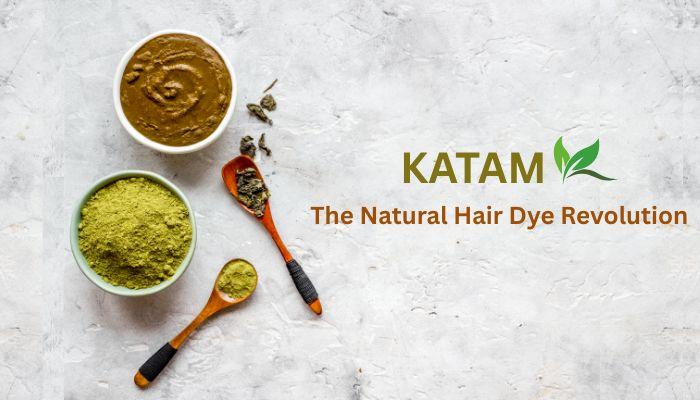The global consumer mindset has shifted dramatically over the last decade. This change has happened very fast across all countries. Increasingly, people are questioning what ingredients in the products they use every day—whether it is a moisturizer, a cleaning spray, or a snack bar. The rise of non-toxic and health-conscious products reflects this growing awareness. Consumers no longer accept harmful chemicals, undisclosed additives, or unsustainable practices. Instead, they demand transparency, safety, and eco-friendliness.
This article explores what makes a product “non-toxic” or “health-conscious,” explore the reasons behind this rising trend, categories of products leading the movement, notable examples, challenges faced by the industry, and what the future holds.
Also Read: 10 Powerful Talbina Benefits You Need To Know For Optimal Wellness
What Are Non-Toxic and Health-Conscious Products?
A product is considered non-toxic if it is free from harmful chemicals or ingredients that could negatively impact human health or the environment. Health-conscious products go a step further by promoting wellness through natural, organic, or eco-friendly components.
Key characteristics include:
- Free from parabens, phthalates, sulphates, and artificial fragrances.
- Made from plant-based or organic ingredients.
- Environmentally sustainable packaging (biodegradable, recyclable, or refillable).
- Cruelty-free testing and ethical sourcing.
Why the Shift Toward Non-Toxic Products?
Several factors are surely driving consumer demand for safer and health-conscious alternatives. Moreover, people are increasingly seeking products that support their well-being and safety needs:
Health Awareness – More people are now worried about the same health problems like allergies, skin issues, and diseases caused by their daily habits.
Environmental Concerns – Chemicals end up in soil and waterways, causing long-term ecological damage.
Transparency and Education – The internet educates people about hidden risks, making them more aware and informed consumers.
Regulation and Certification – Certified organic and non-toxic labels help customers trust the products the same way official approvals work in any industry.
Lifestyle Trends – The wellness trends focus on complete healthy living. People want balanced lifestyle choices now.
Key Categories of Non-Toxic and Health-Conscious Products
Clean Beauty: Skincare and Cosmetics
Consumers are drawn to clean beauty—products free from synthetic chemicals and filled with nourishing natural ingredients.
Ingredients avoided: parabens, formaldehyde, mineral oils.
Alternatives: aloe vera, turmeric, jojoba oil.
Example brands: Juice Cosmetics (India), Soultree, INIKA Organic.
Personal Care and Hygiene
Daily-use products are getting safer with:
Aluminum-free deodorants.
- Native Deodorant
- Schmidt’s Natural Deodorant
- Toms of Maine Long-Lasting Deodorant
- Kopari Coconut Deodorant
- Crystal Mineral Deodorant
- Each & Every Natural Aluminum-Free Deodorant
- Ursa Major Hoppin’ Fresh Deodorant
- Drunk Elephant Sweet Pitti Deodorant Cream
- Malin + Goetz Eucalyptus Deodorant
- Hello Natural Deodorant
Fluoride-free toothpastes with baking soda (Check the ingredients and safety claims)
Dr. Bronner’s All-One Toothpaste (Peppermint, Spearmint, Cinnamon, Anise)
- Fluoride-free & SLS-free.
- Contains sodium bicarbonate (baking soda) plus hydrated silica, calcium carbonate etc.
Davids Premium Natural Toothpaste – Peppermint / Sensitive + Whitening / etc.
- Fluoride-free, with baking soda among its abrasives.
Organic feminine hygiene products: (Check the Material and safety claims while purchase)
🌿 Organic Pads & Pantyliners
- Natracare – 100% organic cotton pads, plastic-free, chlorine-free.
- Organyc – Biodegradable pads made with organic cotton.
- Rael – Pads with organic cotton top sheet, free from fragrances and harsh chemicals.
🌸 Organic Tampons
- Cora – Organic cotton tampons with BPA-free applicators.
- LOLA – Made with 100% organic cotton, available with or without applicator.
- Seventh Generation – Chlorine-free, organic cotton tampons.
💧 Menstrual Cups (Medical-Grade Silicone, Reusable)
- Saalt Cup – Soft, flexible, and eco-friendly.
- DivaCup – One of the most popular menstrual cups.
- Lunette – Made with medical-grade silicone, toxin-free.
🌼 Period Underwear (Reusable & Organic Options)
- Thinx (Organic Cotton line) – Leak-proof period underwear.
- Modibodi (Organic range) – Sustainable period underwear.
- Saalt Wear – Made with organic and eco-friendly fabrics.
🌱 Other Hygiene Products
- Organic cotton wipes – e.g., Natracare Organic Cotton Intimate Wipes.
- Organic intimate washes – e.g., The Honey Pot Company (plant-based, pH-balanced).
Non-Toxic Home Cleaning Products
Safer alternatives replace harsh chemicals:
Ingredients: vinegar, citrus extracts, plant-based surfactants.
Benefits: safer for children, pets, and the environment.
Example brands: Seventh Generation, Puracy, Indian eco-cleaning startups.
Food and Beverages
The clean-label food movement promotes:
- Organic fruits/vegetables, whole grains, natural sweeteners.
- Functional foods like probiotics, turmeric, chia seeds.
Baby and Child Care Products
Safer options for children include:
Biodegradable diapers (Check the Material and safety claims while purchase)
- Andy Pandy Bamboo Diapers
- Eco by Naty Diapers
- Dyper Bamboo Diapers
- Bambo Nature Diapers
- Nest Baby Diapers
- Happy Little Camper Natural Diapers
- Earth + Eden Diapers
- ECO BOOM Bamboo Diapers
Organic baby lotions. (Check the ingredients and safety claims)
- Earth Mama Organics Simply Non-Scents Baby Lotion
- Pipette Fragrance-Free Baby Lotion
- Shoosha Truly Organic Baby Sensitive Skin Face & Body Lotion
- ATTITUDE Baby Leaves Body Lotion
- Babo Botanicals Sensitive Baby Fragrance-Free Cream
- Primally Pure Baby Balm
- Badger Baby Balm
- Weleda Calendula Baby Lotion
- Mamaearth Daily Moisturizing Natural Baby Lotion
- Organic Dew Baby Face & Body Lotion
BPA-free toys (Check the Material and safety claims)
- Magna-Tiles
- Spielstabil
- Green Toys
- Apple Park
- Bannor Toys
- Grimm’s
- Hevea Planet
- Mushie
- Sophie la Girafe
- Uncle Goose
Eco-Friendly Alternatives
Non-toxic living extends to everyday lifestyle:
- Bamboo toothbrushes, reusable straws, compostable packaging.
- Example: Bamboo India promoting sustainable daily products.
Benefits of Non-Toxic Products
Health Protection – Reduces risks of hormone disruption and allergies.
Environmental Sustainability – Less pollution and carbon footprint.
Ethical Supply Chains – Cruelty-free and fair trade.
Peace of Mind – Safer choices build trust.
Challenges Facing the Industry
Greenwashing – Misleading claims of being “natural.”
High Costs – Organic alternatives can be pricier.
Limited Awareness – Consumers may not understand labels.
Varying Regulations – Standards differ across countries.
Also Read: Transform Your Life with Simple Daily Meditation Techniques
The Future of Non-Toxic and Health-Conscious Products
Tech Integration – Barcode scanning apps for safety ratings.
Personalization – Skincare and supplements tailored to individuals.
Sustainable Packaging – Compostable containers, refill stations.
Mainstream Adoption – Non-toxic products will become everyday essentials.
Tips for Consumers Choosing Non-Toxic Products
Read Labels Carefully – Look for certifications like USDA Organic, EcoCert.
Avoid Misleading Buzzwords – Verify ingredients beyond “natural.”
Switch Gradually – Start with one product category.
Support Local Brands – Many startups are authentic and sustainable.
Do Research – Use online resources to check product safety.
Conclusion
The rise of non-toxic and health-conscious products is more than a trend— but represents a major cultural change. From clean beauty to eco-friendly cleaning, consumers now demand products that align with health and sustainability values. This shift reflects their growing awareness about environmental and personal well-being. Despite challenges like greenwashing and higher costs, conscious consumerism is pushing industries to innovate.
Every purchase you make becomes a choice for better living. You contribute to a cleaner planet with each buying decision. As per business requirements, transparency provides an opportunity for building trust. Regarding company growth, this direct approach helps in establishing better relationships. For consumers, this method further protects health and contributes to a sustainable future.
In short: Non-toxic living is not about avoiding harm—it is about creating a safer, healthier, and more sustainable tomorrow.




